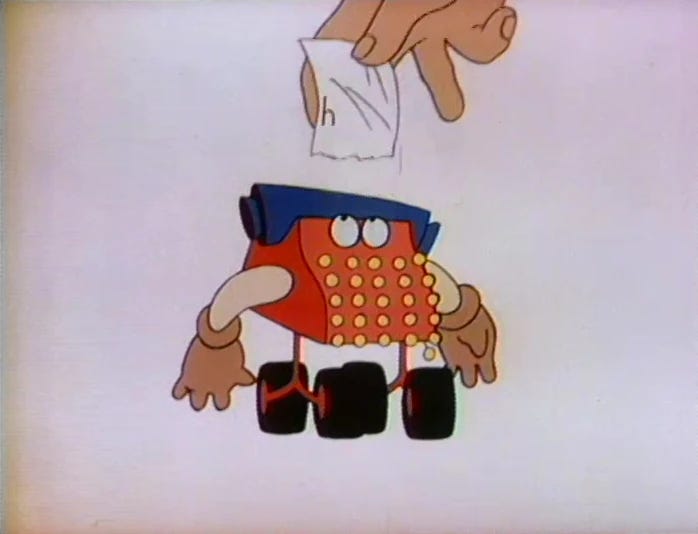My mother wears out her PC keyboards pretty quickly. The symbols on the keys fade until the keys are just a solid color. Some keys are jammed deep into their grooves that they've lost their buoyancy altogether. To type on my mother's keyboard, you must know the qwerty layout by heart and trust that knowledge fiercely. You must also be willing to omit some letters in your work (usually the crucial ones).
The fate of her keyboards made sense when my sister pointed out that our mother learned to type on a manual typewriter. The keys on typewriters have more resistance and depth to cover. You need to press the keys hard to get the typebars to hit the ribbon and stamp the symbols on paper. No wonder her keyboards end up in that dilapidated state – they are used with her fingers' memory of punching keys.
I recently bought a secondhand typewriter, a white Olympia Traveller de Luxe that I've named Mercury. The purchase was inspired by my friend's writing practices with her typewriter and also by my curiosity around my mother’s sorry keyboards – what is this force that drives a modern-day keyboard to ruins?
What I've gathered from a month with Mercury is that there is no half-heartedness with typewriters. You do not type words with a typewriter, you strike them. You mark a blank sheet of paper by beating it. And this action is not hidden from you either – it is right there for you to see (and hear) as you are doing it.
There is something inherently violent, audacious, and challenging about this process. It is violent because unrefined words are bound to cut through logic and at least some shared social agreements. To say (or type) them anyway is audacious. And to watch yourself be unhinged like that to the edge of the page is challenging. The amount of paper I've wasted in the last month illustrates that. One minor error and my reflex is to pull the paper out, crumple it, and start over. I couldn't tolerate not editing as I go – more so the fact that I didn't even have that choice.
But the typewriter has shown me again and again that it doesn't care – it will take your words as they are. No corrections, no suggestions, no chance to take it all back. Nothing captures the rawness of a moment better.
The typewriter is a midwife that helps you give birth to something drenched in your own blood and fluids. It is there to pull out and reveal what is inside, not refine. It doesn't concern itself with niceties like synonyms for a word that might sound more polite or smart; the typewriter will always repeat what you said back to you without taking a stab at what you might mean. The typewriter looks you in the eye: it is ready when you are.
The typewriter can teach you precision but not before it teaches you to increase your capacity around messes.
The typewriter can teach you speed but not before it teaches you that endurance to finish the page is what you are building.
The typewriter can teach you to consider how you can say something better but not before it teaches you to ask yourself this: How brutally honest can I be with myself?
THAT is the force that wrecks my mother's keyboards.
Now let it wreck you too.
Happy Taurus season, the sign of physical things!
My question for the season is: What is an object that is important to you and what does it tell you?




